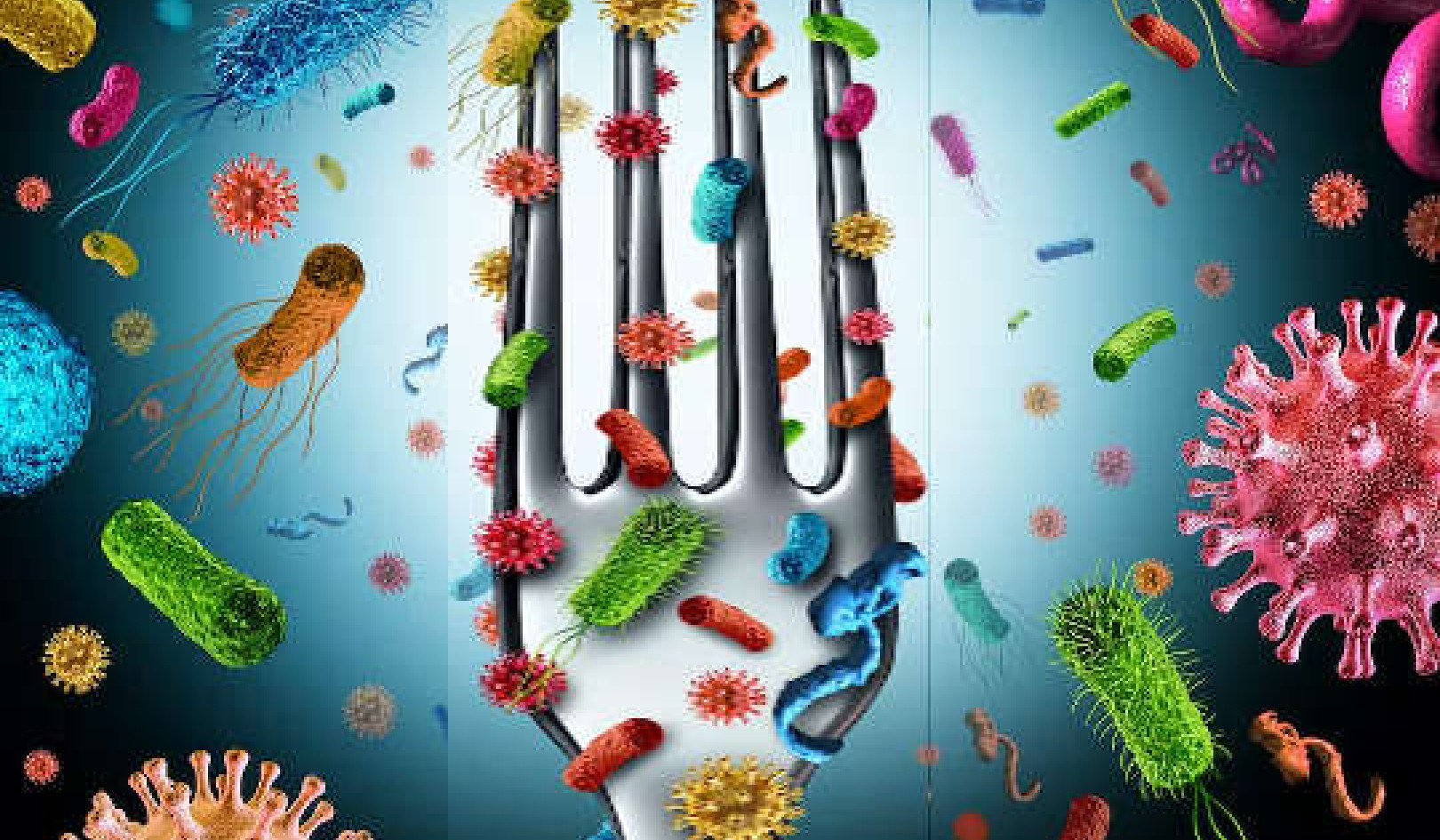
We live in an era marked by the rise and pervasiveness of processed foods, a phenomenon deeply intertwined with our health and well-being. My journey in exploring the relationship between food and health, a voyage spanning decades, has revealed alarming truths about the processed food industry and its impacts. It is essential to understand the intricate network of the food industry, its lobbying powers, its entanglement with government regulation, and its complicity in the degenerating health of our societies. The evidence is robust; our food systems are failing us.
As I've navigated my dietary course, I've become increasingly aware of the destructive effects of ultra-processed foods. The health effects of consuming ultra-processed foods are well-documented and of great concern. These highly processed food products are often loaded with artificial additives, preservatives, and high levels of added sugars and salt, while lacking essential nutrients and fiber. The cumulative impact of regularly consuming these foods has significant consequences for our health and well-being.
The Evolution of the Processed Food Industry
The evolution of the processed food industry has been marked by significant milestones and changes that have shaped its current state. One pivotal moment in this evolution was the introduction of high-fructose corn syrup in 1975. This cheap sweetener, derived from corn, quickly gained popularity among food manufacturers due to its affordability and ability to enhance flavors. Its widespread adoption led to a surge in processed foods containing high-added sugars.
The expansion of the processed food industry brought forth a concerning reality: sweeteners became omnipresent in almost everything. This shift occurred as the government aimed to restrict fats and salt in food products, leading manufacturers to rely heavily on sugar and high-fructose corn syrup to enhance flavor and make processed foods more appealing. The prioritization of sweetness, combined with the addictive nature of ultra-processed foods, has had profound implications for our health.

Using sweeteners in processed foods is not just a matter of taste. Sweeteners are also used to mask the taste of artificial ingredients, fillers, and preservatives. This can make it difficult for consumers to know what they are eating, leading them to consume more unhealthy foods than they would otherwise. To make processed foods palatable after reducing fats and salt, the industry turned to sugar and other sweeteners, potentially compromising the nutritional value of our diets.
This emphasis on sweetness, driven by the need to cater to consumer preferences, has created an environment where sweeteners are seemingly everywhere and deeply ingrained in our food choices. The addictive nature of ultra-processed foods is a serious concern. These foods are designed to be as appealing as possible and often contain high levels of sugar, fat, and salt. This combination of ingredients can trigger the release of dopamine in the brain, a neurotransmitter associated with pleasure and reward. This can lead to cravings and overconsumption, making it difficult for individuals to break their addiction to these foods.
Given the intertwined relationship between government regulations, the processed food industry, and the addictive nature of ultra-processed foods, it is crucial to address these issues comprehensively. Efforts should be directed toward promoting transparency and accountability in the industry, implementing stricter regulations on added sugars, and educating the public about the potential dangers of excessive sweeteners and ultra-processed foods. By fostering awareness and empowering individuals to make informed dietary choices, we can break free from the grip of sweeteners and create a future where our food environment supports optimal health and well-being.
Finally, it is important to remember that the government is not the only entity that can address the issues raised by expanding the processed food industry. Individuals can also make a difference by making informed choices about their food choices. We can all reduce our intake of added sugars and other unhealthy ingredients by eating whole, unprocessed foods. We can also support businesses that are committed to providing healthy food options.
The Unhealthy Effects of Processed Foods
One major concern associated with a high intake of ultra-processed foods is the increased risk of obesity and related conditions. Studies have consistently shown a strong link between consuming processed foods and weight gain. The excessive amounts of added sugars, unhealthy fats, and refined carbohydrates in these products contribute to an energy-dense, nutrient-poor diet promoting weight gain and obesity. Obesity, in turn, is a risk factor for a range of chronic diseases, including type 2 diabetes, cardiovascular diseases, certain types of cancer, and musculoskeletal disorders.
Another troubling health effect of consuming ultra-processed foods is the increased risk of developing cardiovascular diseases. These processed foods often contain high levels of trans fats, sodium, and added sugars, which are known contributors to heart disease. Excessive sodium intake can lead to high blood pressure, a significant risk factor for heart disease. Additionally, high levels of unhealthy fats, such as trans fats and saturated fats, can raise cholesterol levels and contribute to atherosclerosis, a condition characterized by plaque buildup in the arteries.
The association between ultra-processed food consumption and chronic diseases extends to conditions such as metabolic syndrome, a cluster of risk factors that increase the likelihood of developing heart disease, stroke, and type 2 diabetes. The combination of excessive calorie intake, unhealthy fat distribution, elevated blood pressure, and abnormal blood sugar levels commonly observed in individuals consuming a diet rich in ultra-processed foods contributes to the development of metabolic syndrome.
The Role of the Processed Food Industry in the Global Health Crisis
The processed food industry plays a significant role in the current health crisis we are witnessing globally. Our dietary patterns have shifted drastically from traditional diets rich in whole, nutritious foods to diets dominated by processed foods and high-sugar drinks. This shift is characterized by the excessive consumption of added sugars, particularly high-fructose corn syrup, and a decrease in the intake of essential dietary fiber. These changes have had profound effects on our health and well-being.
The impact of the processed food industry on global health goes beyond the individual level. The adoption of processed food diets has become a global phenomenon, and as a result, we are witnessing a convergence of health statistics across countries. As nations embrace Western-style diets, they mirror the health challenges faced by countries where processed foods dominate the food landscape. This highlights the pervasive influence of the processed food industry on a global scale and underscores the urgency of addressing this issue collectively.
The shift towards diets high in processed foods, with excessive amounts of added sugars and lacking in essential nutrients, has contributed to the surge in chronic diseases and a decrease in overall lifespan. The impact is not limited to specific regions or countries; it is a global phenomenon.
Recognizing the role of the processed food industry in the current health crisis is crucial for implementing effective strategies to promote healthier dietary habits and mitigate the adverse health effects associated with the consumption of processed foods. Put simply it is an industry that puts profits before their customer's health.
The Financial and Quality of Life Impacts of Processed Foods
The financial impact of our dependence on processed foods is staggering, particularly regarding healthcare expenditures. The prevalence of chronic diseases, many linked to poor dietary choices, places a tremendous burden on healthcare systems. In the United States, it is estimated that approximately 60% of healthcare spending is utilized during the last six months of a person's life, often due to the complications and treatments associated with chronic, diet-related diseases.

These skyrocketing healthcare costs associated with chronic diseases reflect the need for intensive medical interventions, medications, hospitalizations, and long-term care. The financial strain affects individuals, healthcare systems, insurance providers, and governments. The resources allocated to managing chronic diseases could otherwise be used for preventive measures, early interventions, and promoting healthier lifestyles.
Recognizing the financial burden to society of our reliance on processed foods is essential. Addressing these challenges requires a comprehensive approach focusing on prevention, education, and creating an environment supporting healthier dietary choices. By doing so, we can reduce healthcare expenditures, enhance the well-being of individuals, and foster a healthier, happier society.
Suggestions for Reversing the Alarming Trends
One effective approach to combatting the processed food industry's influence is by expanding access to fresh, whole foods. This can be achieved by supporting local farmers and promoting sustainable agriculture. Additionally, efforts should be made to address food deserts and ensure that underserved communities can access affordable, nutritious options. Providing subsidies for healthy foods can further incentivize individuals to make healthier choices and reduce their reliance on processed foods.
Raising awareness about the detrimental effects of processed foods is crucial in empowering individuals to make informed diet decisions. Public health campaigns can be launched to disseminate accurate information and debunk common misconceptions about nutrition. Implementing nutrition education programs in schools and incorporating wellness initiatives in workplaces can also play a vital role in educating individuals from an early age and encouraging healthier lifestyle choices.
Government intervention through policies and regulations is necessary to curb the negative impacts of the processed food industry. Implementing stricter regulations on using unhealthy ingredients, such as artificial additives and excessive sugars, can help reduce the harm caused by processed foods. Transparency should be emphasized by requiring food companies to disclose more detailed information about their product's nutritional content and additives. Additionally, imposing sugary drink taxes can discourage consumption and contribute to public health efforts.
Ending subsidies for corn is a crucial step in addressing the alarming trends associated with the processed food industry. It can reduce the consumption of high-fructose corn syrup, promote healthier agricultural practices, encourage better food choices, and address economic and social inequalities. By redirecting resources towards sustainable farming practices and diversifying crops, we can decrease the availability and affordability of unhealthy corn-derived products. This change can incentivize consumers to opt for whole, nutritious foods, leading to improved dietary patterns and better health outcomes. Moreover, ending corn subsidies can support local farmers and foster economic diversification, creating a more equitable and resilient food system that prioritizes community well-being and environmental sustainability.
By adopting these suggested strategies, we can take significant steps toward reversing the alarming trends associated with the processed food industry. It requires a collaborative effort involving governments, communities, educators, and individuals. Together, we can create a food environment that prioritizes health, promotes access to nutritious options, and empowers individuals to make informed choices for their well-being.
Reflection on Past and Present
In light of my health journey, I can attest to the importance of recognizing the detrimental effects of ultra-processed foods and taking action to prioritize well-being. Over the years, I have understood that knowledge alone is not enough; it requires a personal commitment and proactive choices to resist the allure of convenience and fast foods, and prioritize health.
Looking back on my understanding of these issues in 1977, it is evident that while our nutritional knowledge has improved, the processed food industry's influence on our diets and health has grown stronger. However, armed with awareness and a deep-rooted commitment to change, we have the power to reshape our dietary landscapes and reclaim our health.
Who Are We Going To Call?
Reversing the alarming trends associated with the processed food industry requires a collective effort. It necessitates individual dedication and systemic reforms in food policies and government regulations. We must challenge the status quo and advocate for a future where food is our ally, not our enemy. Let us envision a world where we live longer and lead healthier, more fulfilling lives.
We must recognize the detrimental impacts of consuming ultra-processed foods and take proactive steps towards embracing a balanced, whole-food-based diet. By doing so, we can counter the stranglehold of the processed food industry and create a future where profit-driven motives do not dictate our health.
The time for action is now, and together, we can forge a path toward a healthier and more vibrant existence.
How Americans Are Tricked Into Buying Fake Food
About the Author
 Robert Jennings is co-publisher of InnerSelf.com with his wife Marie T Russell. He attended the University of Florida, Southern Technical Institute, and the University of Central Florida with studies in real estate, urban development, finance, architectural engineering, and elementary education. He was a member of the US Marine Corps and The US Army having commanded a field artillery battery in Germany. He worked in real estate finance, construction and development for 25 years before starting InnerSelf.com in 1996.
Robert Jennings is co-publisher of InnerSelf.com with his wife Marie T Russell. He attended the University of Florida, Southern Technical Institute, and the University of Central Florida with studies in real estate, urban development, finance, architectural engineering, and elementary education. He was a member of the US Marine Corps and The US Army having commanded a field artillery battery in Germany. He worked in real estate finance, construction and development for 25 years before starting InnerSelf.com in 1996.
InnerSelf is dedicated to sharing information that allows people to make educated and insightful choices in their personal life, for the good of the commons, and for the well-being of the planet. InnerSelf Magazine is in its 30+year of publication in either print (1984-1995) or online as InnerSelf.com. Please support our work.
Creative Commons 4.0
This article is licensed under a Creative Commons Attribution-Share Alike 4.0 License. Attribute the author Robert Jennings, InnerSelf.com. Link back to the article This article originally appeared on InnerSelf.com
Related Books:
The Body Keeps the Score: Brain Mind and Body in the Healing of Trauma
by Bessel van der Kolk
This book explores the connections between trauma and physical and mental health, offering insights and strategies for healing and recovery.
Click for more info or to order
Breath: The New Science of a Lost Art
by James Nestor
This book explores the science and practice of breathing, offering insights and techniques for improving physical and mental health.
Click for more info or to order
The Plant Paradox: The Hidden Dangers in "Healthy" Foods That Cause Disease and Weight Gain
by Steven R. Gundry
This book explores the links between diet, health, and disease, offering insights and strategies for improving overall health and wellness.
Click for more info or to order
The Immunity Code: The New Paradigm for Real Health and Radical Anti-Aging
by Joel Greene
This book offers a new perspective on health and immunity, drawing on principles of epigenetics and offering insights and strategies for optimizing health and aging.
Click for more info or to order
The Complete Guide to Fasting: Heal Your Body Through Intermittent, Alternate-Day, and Extended Fasting
by Dr. Jason Fung and Jimmy Moore
This book explores the science and practice of fasting offering insights and strategies for improving overall health and wellness.



























